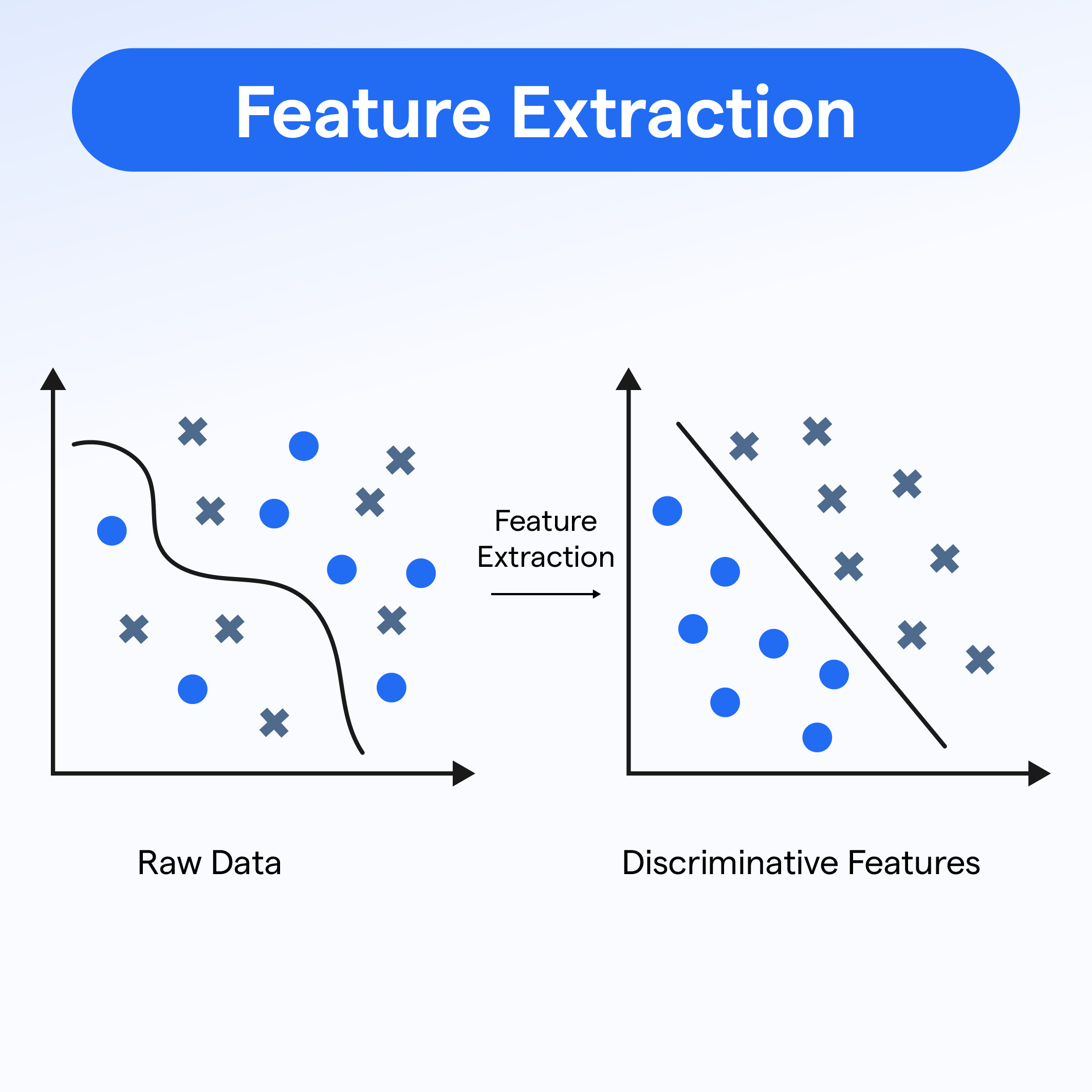What is Feature Extraction?
Feature extraction is a process in machine learning where initial raw data is used to derive values (or features) that can be processed and utilized by machine learning algorithms.
Think of it like distilling the essential characteristics from a complex beverage to better understand its flavor profile.
Importance of Feature Extraction
In the realm of machine learning, the concept of 'garbage in, garbage out' holds true. The inputs directly affect the outputs.
That's where Feature Extraction comes in. It ensures that your model receives the high-quality, relevant inputs it needs to make accurate predictions.
Feature Extraction in Machine Learning
In the world of machine learning, feature extraction is an integral part of optimizing models—it brings forth significant and relevant data, subsequently helping to enhance the efficiency and precision of these models.

An Example of Feature Extraction
Consider an image recognition AI that is designed to identify trees in photographs.
Feature extraction might involve teaching the model to look for certain colors (like green and brown), shapes (like round and elongated), and textures (like the roughness of bark or smoothness of leaves).
Why Use Feature Extraction?
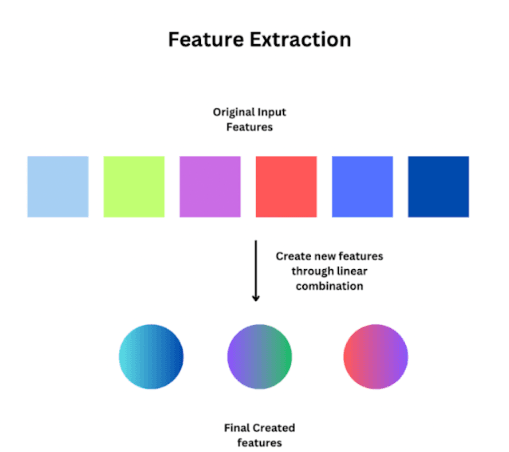
Dive into the reasons why Feature Extraction is a cornerstone in machine learning and data analysis.
- Dimensionality Reduction: Feature extraction helps in reducing the dimensionality of the dataset. This translates into less complex, faster, and more efficient modeling processes.
- Improving Model Performance: By omitting irrelevant features, models can focus on pertinent information, leading to improved performance and accuracy.
- Noise Reduction: Extracting salient features can help reduce noise in the dataset. With less noise, the model can make decisions based on clean, clear data.
- Understanding Data: Feature extraction can help better understand the dataset by shedding light on its crucial aspects. It helps highlight the relationships between various data elements.
Who Uses Feature Extraction?
Let’s identify who could benefit from using Feature Extraction and where it's typically applied.
- Data Scientists: Data scientists routinely use feature extraction to minimize computational demand and maximise algorithmic accuracy when dealing with high-dimensional data.
- Machine Learning Engineers: These engineers utilize feature extraction to refine the inputs for machine learning models. It helps them build efficient models providing precise outputs.
- Businesses: Companies across different sectors are deploying machine learning models to garner insights from their amassed data. Feature extraction plays a key role in these processes.
- Research Institutions: Feature extraction is an essential step in research-based institutions where machine learning is used to drive innovation.
When Do We Use Feature Extraction?
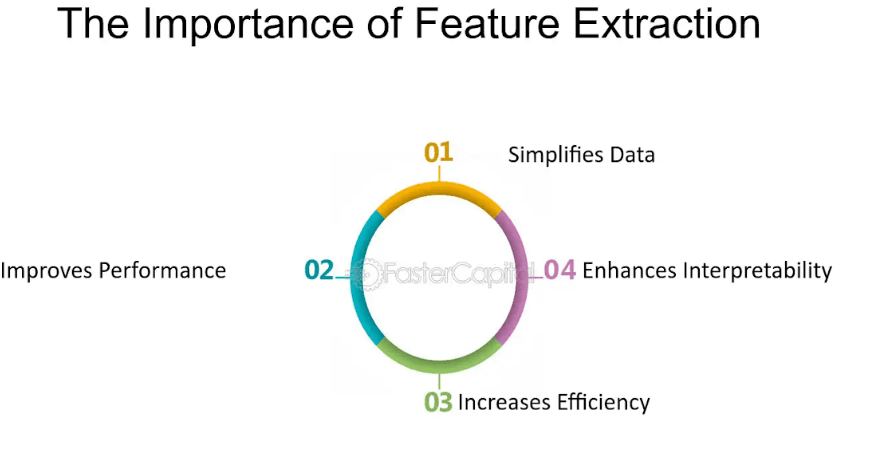
Now, let's explore when Feature Extraction is ideally utilized in the machine learning pipeline.
Pre-Processing Stage
Feature extraction is primarily performed during the data preprocessing stage in machine learning. This is before the model is trained.
When Handling High-Dimensional Data
High-dimensional datasets may contain dozens of attributes, but not all of them are needed to build a successful model. Feature extraction steps in to identify and collect those features that matter.
Complex Computation Processes
In situations where data computation processes are complex and time-consuming, feature extraction proves useful in simplifying the calculations.
Enhancing Model Accuracy
The process can also be implemented iteratively during model selection and refinement, using feature importance measures to progressively fine-tune feature selection and improve model accuracy.
Where is Feature Extraction Applied?
There's a wide variety of applications for Feature Extraction. We'll uncover some of them next.
Image Processing
From facial recognition systems to health diagnosis, feature extraction is instrumental in narrowing down crucial image characteristics for analysis.
Natural Language Processing (NLP)
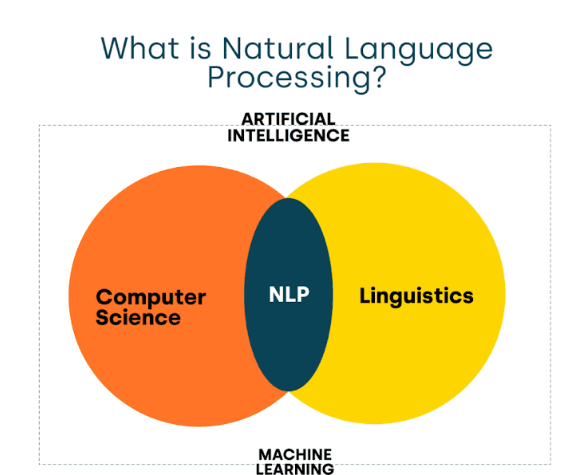
Feature extraction helps identify key words or phrases in text analytics, sentiment analysis, and more, enabling effective language processing.
Biometrics
In the biometrics field, defining key variables like fingerprint patterns, iris characteristics, etc., empowers systems to distinguish and recognize individual profiles.
Internet of Things (IoT)
IoT devices generate enormous data that needs processing. Feature extraction aids in highlighting the significant data, aiding in robust insights extraction.
How Does Feature Extraction Work?
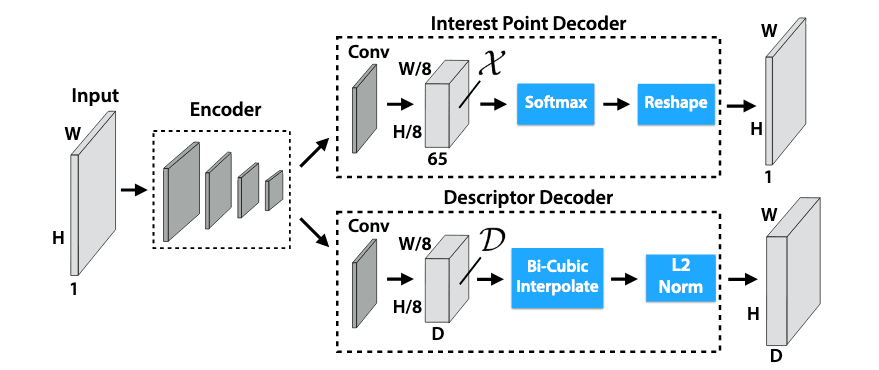
Let's dive into the mechanics of how Feature Extraction operates and functions in data analysis.
- Selection of Relevant Features: Feature extraction starts with identifying the relevant features that contribute to the model's performance. It's like selecting the key ingredients to make a perfect cup of coffee.
- Transformation of Data: The selected data is then transformed. This can be as simple as scaling numeric values or as complex as applying mathematical techniques like Principal Component Analysis (PCA) or Singular Vector Decomposition (SVD).
- Training Model on Extracted Features: Once the relevant features are extracted and transformed, they're utilized to train and validate the predictive or prescriptive model.
- Evaluation: After the model is built, the effectiveness of the feature extraction process is assessed based on the model's predictive accuracy.
This might lead to further iterations of feature extraction to refine the model.
Frequently Asked Questions (FAQs)
What is the difference between feature extraction and feature selection?
Feature selection involves choosing the most important features from the existing dataset. In contrast, feature extraction creates new features from the original data, typically by transforming or combining existing features.
Why is feature extraction used in machine learning?
Feature extraction is a critical step in machine learning. It can help reduce the dimensionality of the data, improve model performance, reduce noise, and help better understand the dataset.
Can feature extraction improve model performance?
Yes, feature extraction can greatly improve model performance. By focusing only on the most relevant features, it enables the model to process cleaner, more substantial data and deliver more accurate outcomes.
How is feature extraction used in image processing?
In image processing, feature extraction might involve identifying distinctive characteristics like edges, textures, or colors. This helps in differentiating objects or recognizing patterns within the images.
What are some techniques used for feature extraction?
Several techniques can be utilized for feature extraction, depending on the data and problem at hand. These could include, but are not limited to, Principal Component Analysis (PCA), Independent Component Analysis (ICA), Linear Discriminant Analysis (LDA), and Autoencoders.
